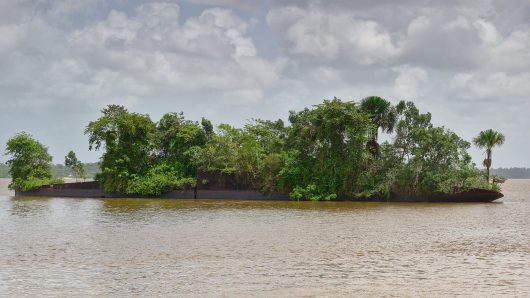Why Sanitation Is Key to Water Quality in Guyana
 Guyana is a country in the northeastern corner of South American, between Venezuela and Suriname. It was a former British colony and is the only English-speaking country in South America. Guyana is an Amerindian word that means “land of many waters“, something that is contradicted by the water quality in Guyana at this moment.
Guyana is a country in the northeastern corner of South American, between Venezuela and Suriname. It was a former British colony and is the only English-speaking country in South America. Guyana is an Amerindian word that means “land of many waters“, something that is contradicted by the water quality in Guyana at this moment.
Water pollution is a growing issue in Guyana and action needs to be taken soon to rectify the problem. The main contributors to water pollution in the region are domestic waste, agriculture and industries. Some more specific examples that can be identified are industrial waste, sewage, mining activities, marine dumping, accidental oil leakage, chemical fertilizers and pesticides, leakage from sewer lines, urban development, animal waste and leakage from landfills.
Sanitation is a growing problem that has been affecting water quality in Guyana, particularly in heavily populated areas. Without sanitation, there is a risk of infectious diseases affecting the most vulnerable groups, such as the very young, the elderly and people suffering from diseases that lower their resistance. It has also led to fatal contamination of rivers and other waters that is not only dangerous for humans, but for other species as well, harming the ecological balance of the environment.
Water is key to sanitation because it is used to keep ourselves and our surroundings clean, and it is a resource we must protect if we hope to maintain a general sense of cleanliness. According to the World Health Organization, 5.3 percent of all deaths and 6.8 percent of all disabilities worldwide are caused by poor sanitation. Additionally, there are 1.8 million people dying annually from diarrheal diseases, 90 percent of whom are children.
To combat this issue, Guyana Water Inc. (GWI) was created with the mission of delivering safe, adequate and affordable water and to ensure safe sewerage systems for improved public health and sustainable economic development. Despite these efforts, an assessment of the accounts of GWI has revealed that the company has been operating at a loss. The Minister of Finance, Winston Jordan, has noted that an analysis has shown that the economic costs of production of potable water surpass the current tariff, with electricity costs and non-revenue water affecting financial viability.
Residents have been calling on GWI and other relevant authorities to expedite the improvements to the water quality in Guyana so that they can return to enjoying a normal quality of life. By improving the water and sanitation systems, Guyana can eliminate these issues and return to a state where potable water is not a luxurious amenity and instead can be enjoyed by everyone.
– Drew Fox
Photo: Flickr
